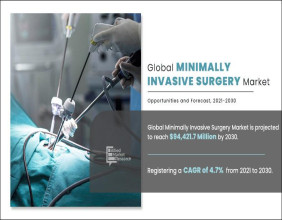2023 saw the highest sighting rates and numbers of minke whales yet recorded in the Hebrides, but the lowest known for basking sharks, says a new report by the Hebridean Whale and Dolphin Trust.
Published by Scotland’s nature agency NatureScot, the report presents findings collected during the Trust’s marine research expeditions onboard its research vessel, Silurian, over the past three years, together with sighting rates and numbers for minke whales and basking sharks from the 20 years the programme has been running.
The latest findings suggest changes in sightings rates for minke whales and basking sharks, and a possible association between these two highly mobile and long-lived species. When sighting rates for basking sharks are high, they are low for minke whales, and vice versa.
The reasons are as yet unexplained, and the Hebridean Whale and Dolphin Trust says more work is needed to analyse the trends over time, and to investigate potential causes such as climate change.
“Scotland’s west coast seas are a global hotspot for cetaceans and basking sharks. Our findings highlight the importance of long-term monitoring of these species and the threats facing them,” said Dr Lauren Hartny-Mills, Hebridean Whale and Dolphin Trust’s Science and Conservation Manager.
“In the face of the nature and climate emergencies, gaining new insights and understanding into what is happening in Scotland’s seas is vital, so we can better protect these remarkable animals and this world-class region of marine biodiversity.”
Scotland’s west coast seas are internationally important for whales, dolphins and harbour porpoise – collectively known as cetaceans – and the globally endangered basking shark. The Isle of Mull-based Trust has been monitoring marine life by running expeditions since 2002, with members of the public joining its research vessel, Silurian, to survey Hebridean seas.
Sighting rates of minke whale soared to 1.57 per 100 km last year – the highest in the two decades of the unique research programme. Minke whale numbers reached a record 167.
In contrast, rates for basking shark fell to 0.07 sightings per 100 km in 2022 and 2023, the lowest recorded by the Trust since its monitoring began. Just seven basking sharks were recorded in both summers.
Minke whales migrate to western Scotland’s seas each summer to feed in the exceptionally rich waters. Despite the encouraging increase in sightings of minke whales, rates do fluctuate over time and there are serious issues affecting this vulnerable species.
With marine life at risk from human activities including climate change, entanglement, pollution, underwater noise and habitat degradation, the Trust says ongoing, long-term research is crucial to improve understanding of the impacts, and how best to protect and restore biodiversity.
Rona Sinclair, Marine Mobile Species Monitoring Advisor at NatureScot, said: “This valuable research is allowing us to track how whales and basking sharks are faring over the long-term in the Hebrides. Without collaboration with organisations like the Hebridean Whale and Dolphin Trust, it would be much more difficult to assess the health of these species, why changes are happening, and what’s necessary for future research and conservation, including within Marine Protected Areas.
“The decrease in basking shark sightings is worrying, and there could be many reasons for this, likely linked to availability of their food, zooplankton. However, they may also still be there at depth and just not visible. Continued collaboration with researchers is vital, helping us to know how these giant beasts – the world’s second largest fish – are faring, so we can respond appropriately.”
The new report, ‘Hebridean Cetacean Research Programme 2021-24’, documents data gathered during the Trust’s research expeditions carried out from April 2021-March 2024 on Silurian.
During this time, 49 surveys covered a total of 22,645 km, with 10 species of mammal recorded in more than 3,000 sightings. Almost 300 volunteers conducted visual surveys and monitoring with underwater microphones, and identified individual animals through photography.
The Trust’s expeditions depend on paying volunteers, who gain training and work as citizen scientists alongside marine experts. Volunteers can join Silurian’s 2025 research expeditions for trips of one or two weeks. Participation costs cover boat expenses, accommodation, training, food, and support the charity’s research. Visit hwdt.org/silurianfor details, or contact [email protected] or 01688 302620.
The new report is available on www.nature.scot, and has been funded and published by NatureScot.
/ Ends
Distributed by https://pressat.co.uk/


